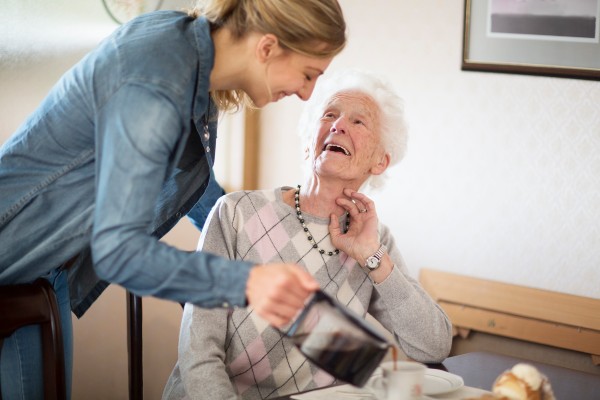By Lucy Caulkett-
Carers are more stressed and less supported by paid services, a survey of over 40,000 has found.
They are also less involved in their loved-ones’ care, less satisfied with the services they receive and less socially connected, according to NHS Digital’s 2021-22 study into the lives of unpaid carers, a regular survey last carried out in 2018-19.
Surveys are generally used to produce estimates of population proportions as it is usually not possible to ascertain the true values for a whole population. The variation, (or margin of error), present in the sampled data can however be used to produce a range of values, or a confidence interval, within which the true value is likely to sit for each measure.
Almost half of carers (49.9 per cent, 160,580 carers) who responded to the survey, care for someone with a physical disability. 38.5 per cent (124,060) care for someone with a long-standing illness and 35.4 per cent (113,970) care for someone with dementia2.
The findings of the research has led to Carers UK to warn that carers were “at breaking point” on the back of the lack of support and isolation they had suffered during the pandemic.
The charity joined adult social services directors in urging more government cash to tackle the issue, but the Department of Health and Social Care responded by pointing to the investment it was already putting in. The survey identified a drop in the number of carers reporting that their loved-ones were accessing services compared with 2018-19, which it said was likely to be, in part, due to the impact of Covid-19.
The percentage of those whose loved-ones received home care in the previous 12 months, continued a steady decline from 40% recorded in 2014-15, while about 18% said their access to day care had gone down about 10 percentage points on 2018-19.
Day services were particularly hard hit by closures during Covid lockdowns. Just 13.3% of respondents said the person they cared for accessed services that allowed them to take a break for more than 24 hours, down from 19.6% in 2018-19, while 10.5% said they could access breaks at short notice, a drop from 13.6% in the previous survey.
Carers were also involved in their loved-ones’ care, with the proportion saying there had been no discussions about services increasing from from 31.2% to 36.1%, while 22.6% said they always felt involved in discussions, down from 27.4% in 2018-19.
The report also said that carers were less likely to receive a service in their own right, with 28.6% saying they had not accessed support or services from their council in the past year, up from 23.1% in 2018-19.
This reflects previous research findings that the introduction of a statutory entitlement to support for carers under the Care Act 2014 had not increased the numbers receiving services.
The NHS Digital research also found that those who did receive support were also less satisfied with it overall, with 36.3% of this group saying they were extremely satisfied, compared with 38.7% in 2018-19.
The survey also found worsening mental health among respondents, with the proportion saying they felt stressed rising from about 60% to 63%, while about 48% reported feeling depressed, up from about 45% in 2018-19. The proportion reporting a mental health problem rose from 10.9% to 13.2%.
Carers were also increasingly isolated, with the proportion saying they had as much social contact as they would like falling from 32.5% to 28%, while 20.9% said they had little social contact and felt socially isolated, up from 17.4% in 2018-19.
Exhausted
In response to the survey, Carers UK chief executive Helen Walker said: “This report confirms what so many unpaid carers have told us. That they are at breaking point, exhausted after more than two years of little or no outside support and an increasing sense of isolation. This is clearly impacting on their sense of value, their mental and physical wellbeing.
“We are calling on the government to implement an urgent ‘Recovery and Respite’ plan, including breaks, desperately needed respite and care services, identification of carers, financial help, and support to juggle work and care. Doing so would recognise the enormous impact the Covid-19 pandemic has had on carers’ lives, as well as the people they care for, and help to mitigate some of the impacts that caring has on many carers’ own physical and mental health.”
A spokesperson for the Association of Directors of Adult Social Services said its regular membership surveys had shown councils developing innovative ways of giving carers breaks during the pandemic. However, they had also found that, while there had been a large increase in home care hours delivered in recent months, there had been an even bigger rise in the number of hours that could not be delivered because of a lack of capacity.
“This is affecting carers’ quality of life and well-being immensely – with many family carers having to take paid or unpaid leave from work, risking their own well-being,” the spokesperson said. “It is a vicious cycle that must be stopped.”
ADASS, which last year called for an £1.5bn injection of government cash to support carers, joined Carers UK in urging ministers to act to provide them with “significantly more support”.
A Department of Health and Social Care (DHSC) said that carers “play a vital role in our communities, and we all owe them a debt of gratitude”.




